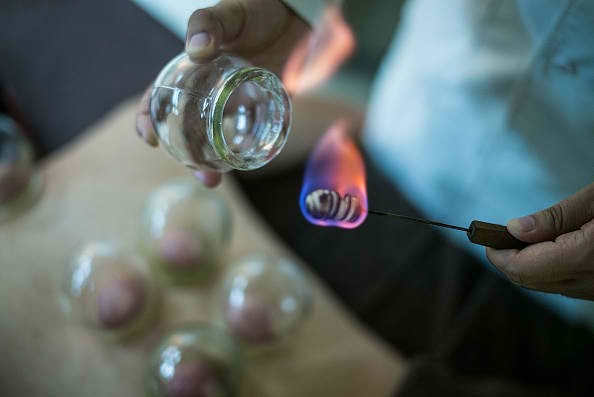Athletes like Michael Phelps, gymnast Alex Naddour and swimmer Natalie Coughlin were all seen with red circles on their backs, or cupping marks, at the 2016 Rio Olympics.
Both Naddour and Coughlin posted photos of themselves getting therapy. Naddour showed a cupping mark on his shoulder while Coughlin posted a photo of her with glasses on her back.
"That's been the secret that I have had through this year that keeps me healthy. It's been better than any money I've spent on anything else," Naddour said.
Cupping therapy involves the use of suction cups or glass and creates a suction through heat. The practice is considered a pseudoscience, as there is no medical evidence that the treatment can cure diseases.
The therapy involves the sucking of skin to make blood vessels rise and as the cups cool, the air inside the cups contracts and creates the red marks on the skin.
"Ebers Papyrus", the oldest medical textbook, records the use of cupping in 1500 B.C. in Egypt. Hippocrates used the same therapy for internal medicine.
However, a paper published in the 2010 edition of BioMedCentral Complementary and Alternative Medicine stated, "The long-term effect of cupping therapy is not known, but the use of cupping is generally safe based on long-term clinical use and reports from the reviewed clinical studies."
Tian Lifang, director of the Acupuncture and Massage Department at Beijing Hospital, said, "Although it is a secondary type of therapy, cupping is more popular than acupuncture and other types of traditional Chinese medicine."
The director also said that cupping is used to treat fatigue or skin diseases like eczema.
"Cupping does two things that benefit people's muscles. It increases local blood circulation and helps ease muscle tension caused by sports-related injuries," Tian said.



























